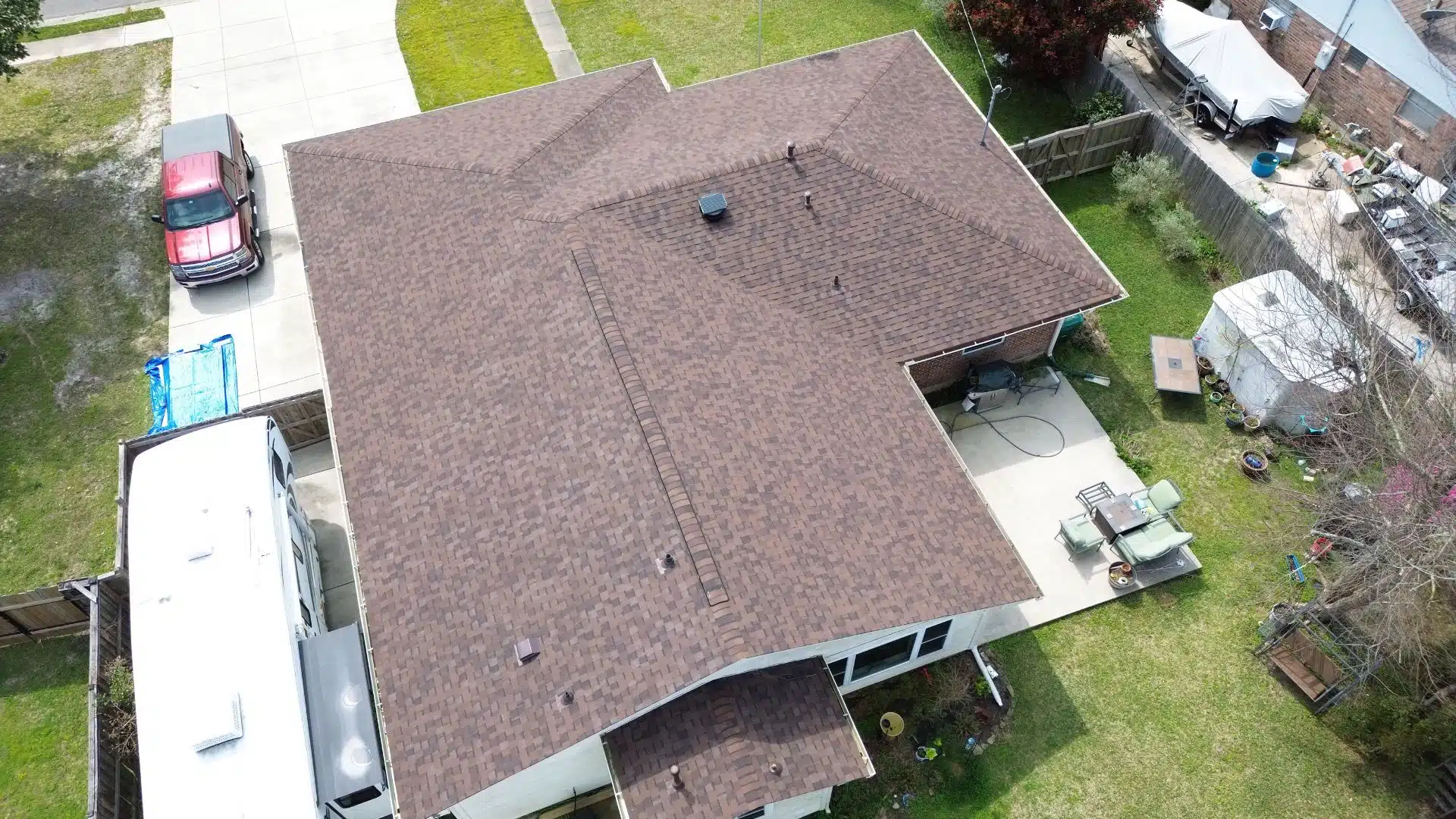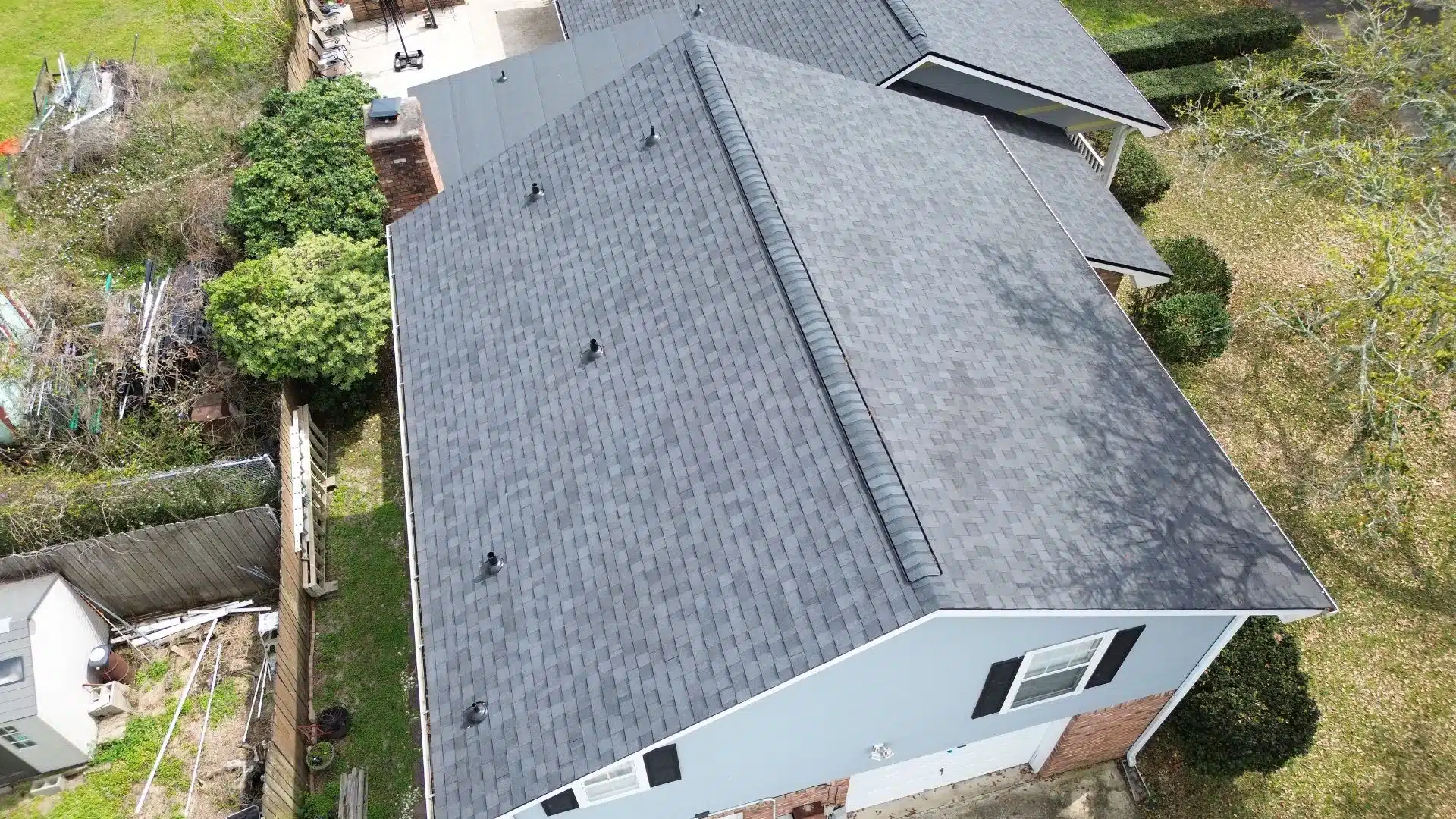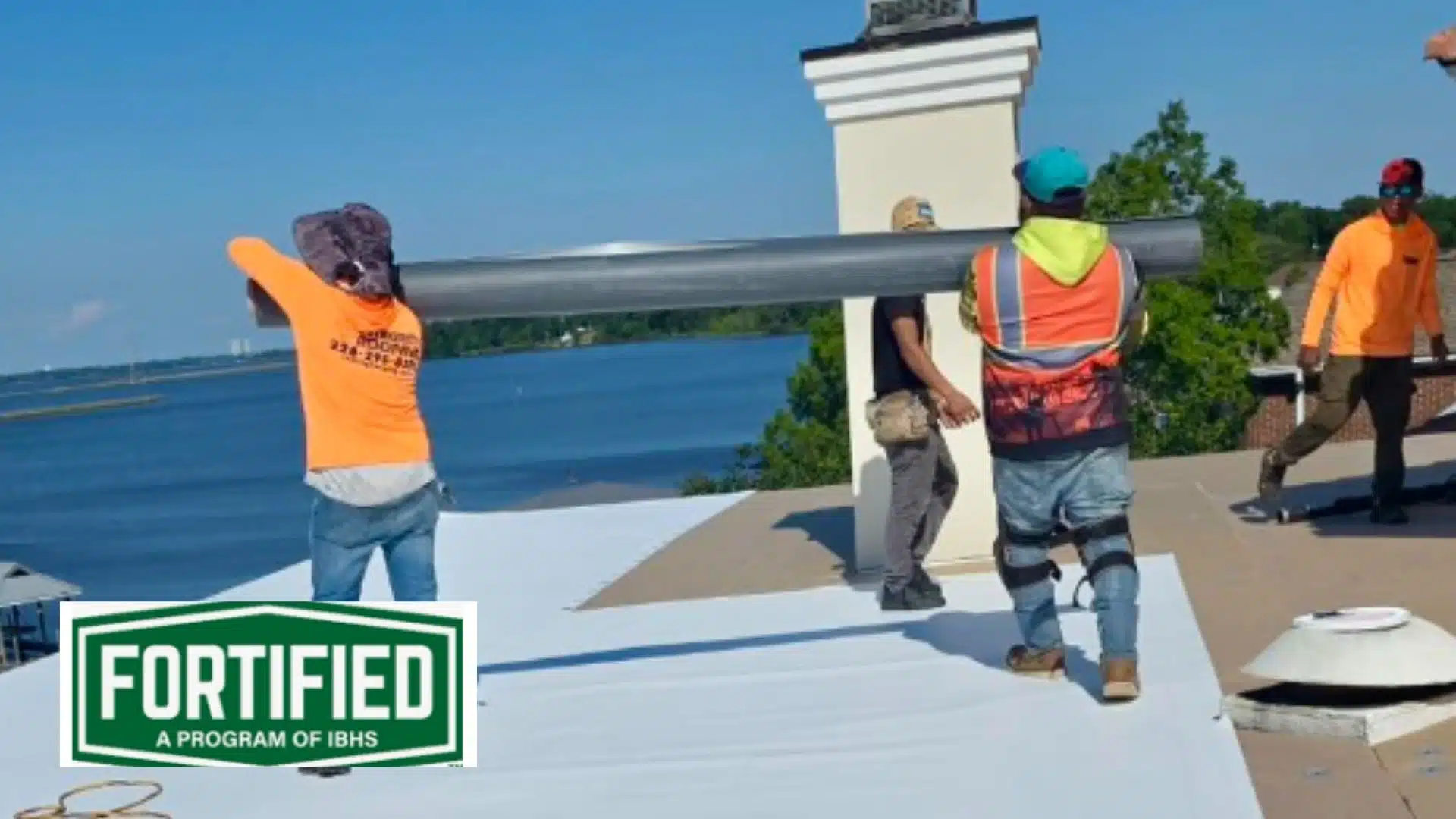Introduction
When it comes to maintaining or replacing your roof, choosing the right roofing contractor in Gulfport MS is essential. Your roof plays a critical role in protecting your home, so ensuring that the person working on it is skilled, reliable, and trustworthy is paramount. A poor roofing job can lead to costly repairs, safety hazards, and even damage to your home.
What to look for when choosing a roofer? To make sure you’re hiring a reputable professional, it’s important to look for several key factors that highlight their qualifications. In this guide, we’ll walk you through the most important elements to consider, from verifying licenses and insurance to evaluating a contractor’s experience and communication skills. By being thorough in your vetting process, you’ll be able to confidently select a roofing contractor who can deliver quality work that will last for years to come.
1. Licensing and Insurance for Roofing Industry
When hiring a roofer, ensuring they have the right credentials is non-negotiable. A valid contractor’s license and appropriate insurance coverage protect both you and the roofer from unexpected complications during the project. A licensed roofer has met the state’s requirements, demonstrating that they are qualified to handle the work. Meanwhile, insurance provides you with peace of mind knowing that you’re covered in case of an accident or damage during the job.
Why it’s important
A roofing contractor with a valid license shows they have passed necessary exams and are familiar with local building codes and regulations. Insurance, on the other hand, protects you from the financial burden if something goes wrong, such as accidental damage to your property or injuries sustained on the job.
What to check for
- Valid contractor’s license or business registration: Ensure the roofer has a proper business registration and a contractor’s license in your state, confirming they are legally authorized to work in your area.
- General liability insurance: This protects you if any property damage occurs while the roofer is working on your home.
- Worker’s compensation coverage: This covers medical expenses if the roofer or their crew gets injured while working on your roof.
What to do
Don’t just take the roofer’s word for it—ask for proof of their insurance and license. Verify the contractor’s license number by checking your state’s online database or regulatory agency. Confirming that they have the right insurance coverage is also critical to ensure you are financially protected throughout the project.
By starting your search with these foundational checks, you’ll be taking a key step toward hiring a roofing contractor who operates with professionalism and integrity.
2. Experience and Expertise
When choosing a roofer, one of the most critical factors to consider is their experience and expertise. A well-established roofing contractor is more likely to deliver high-quality results, as they’ve honed their skills over time and are familiar with the best practices in the industry. Roofing projects can vary in complexity, and the right roofer will have the necessary experience to handle any challenges that arise.
Why it matters
A roofing contractor in Gulfport MS has extensive experience brings a wealth of knowledge to the table. This experience directly impacts the quality of work and ensures that the job is completed efficiently and correctly. The more experienced the roofer, the more likely they are to provide solutions to potential issues before they become significant problems.
What to look for
- Proven track record with years of experience: A roofer with years of experience typically has a solid reputation and a history of successful projects. Look for contractors who have been in business for several years, as this indicates stability and reliability.
- Certifications from reputable roofing manufacturers: Certifications from recognized manufacturers like GAF or CertainTeed demonstrate that the roofer is trained to work with their specific products, ensuring they know how to install and maintain these materials properly.
- Specialization in your specific roof type: Different roofing materials require different techniques. If you have a specialized roof type (e.g., metal, tile, or asphalt shingles), find a roofer who has experience working with that particular material. This ensures they understand the nuances of installation, repair, and maintenance.
3. References and Portfolio
Before you commit to a roofer, it’s crucial to see examples of their previous work. References and a portfolio provide insight into the contractor’s capabilities and work quality, allowing you to gauge whether they can meet your specific needs.
Why it’s essential
Checking past projects helps you understand the roofer’s skill level, craftsmanship, and attention to detail. Real-world examples of their work can also show you how they handle different roofing styles, materials, and challenges. Additionally, speaking to previous clients gives you a clear idea of the roofer’s professionalism, reliability, and customer satisfaction.
What to ask for
- Client references: Ask for a list of past clients who can speak to the roofer’s reliability, quality of work, and overall experience. Contact these references to inquire about their experience and whether they would hire the contractor again.
- A portfolio or list of completed projects: A portfolio is a visual representation of the roofer’s work, showcasing a variety of completed projects. Review the portfolio to see if their work aligns with your needs and expectations.
- Photos of previous work: In addition to a portfolio, ask for photos of completed roofing jobs. Photos give you a tangible sense of the quality, style, and attention to detail in the roofer’s work.
4. Written Proposals and Warranties
A reputable roofer should always provide a clear, detailed written proposal before beginning work. A written proposal helps ensure that both you and the contractor are on the same page regarding the scope of the project, timelines, and pricing. Additionally, a warranty is crucial for your peace of mind, offering protection in case issues arise after the job is completed.
Why it’s important
A well-written proposal acts as a contract, ensuring transparency between both parties. It provides clarity on what will be done, when it will be done, and how much it will cost, reducing the risk of misunderstandings or unexpected costs. Warranties further protect you, guaranteeing that any defects in materials or workmanship will be addressed.
What to ask for
- Detailed written proposal with work descriptions, timelines, and cost breakdowns: Make sure the proposal includes specific details about the scope of work, including materials, labor, and any additional services. It should also provide clear timelines for project start and completion, and an itemized cost breakdown to avoid surprises.
- Explanation of available warranties (material and labor): A reputable roofer will provide details on the warranties they offer for both the materials and the labor. Understand the coverage provided by the warranty, including the length of time and what is covered, such as repairs or replacements due to material defects or installation errors.
By ensuring you have clear written proposals and comprehensive warranties, you can move forward with confidence, knowing that you’re protected throughout the roofing project.
5. Business Stability
A stable roofing business is one that is likely to be reliable and accountable, providing you with peace of mind during the course of your roofing project. The stability of a contractor’s business can indicate their ability to handle ongoing or future maintenance, warranty claims, and any unforeseen issues that may arise. Contractors who are established in the community and operate a stable business are more likely to stand behind their work and uphold their commitments.
Why it’s important
A Gulfport, MS roofing company with a solid foundation ensures that they will be around to support you after the project is completed. Businesses that have been established for years are less likely to disappear after completing a job, which is critical when dealing with warranties or if any follow-up work is required. Additionally, stable businesses tend to have a more professional approach and are usually better equipped to handle various roofing projects.
What to look for
- Permanent place of business: A physical location or office suggests that the roofing company is established and committed to being a long-term part of the community. If the roofer only operates out of a temporary or residential address, this may raise a red flag about their business’s stability.
- Verifiable telephone number and tax identification number: A reliable roofing contractor should have a dedicated business phone number and a tax ID number that can be verified. These are important for legal, financial, and contract-related matters. If the roofer only provides a cell phone number and cannot offer a tax ID, it may be a sign that they lack proper business infrastructure.
6. Quality Control and Project Supervision
Effective supervision and quality control are fundamental to ensuring that your roofing project is completed to the highest standards. Without proper oversight, the quality of the work can suffer, leading to problems down the line. Quality control procedures ensure that all aspects of the project meet or exceed industry standards, while project supervision keeps everything on track, preventing delays or mistakes.
Why it’s crucial
Project supervision ensures that the job is being performed according to plan and any issues are addressed promptly. Without proper supervision, there’s a greater risk that corners could be cut or that problems might go unnoticed until it’s too late. Quality control, on the other hand, guarantees that the materials used are of high quality and the installation is done correctly, which prevents future issues such as leaks, premature wear, or poor durability.
What to ask
- Procedures for project supervision: Inquire about how the project will be managed on a day-to-day basis. Ask whether a site manager will be assigned to oversee the work or if the contractor will be personally involved in the project. Clear and constant supervision ensures the work stays on track and meets your expectations.
- Measures in place for quality control: Ask about the roofer’s quality control procedures to ensure that the job is being done correctly. This could include regular inspections, use of high-quality materials, or adherence to specific installation guidelines. A good contractor will be transparent about how they maintain high standards throughout the project.
By ensuring that the contractor has robust project supervision and quality control systems in place, you’re investing in the long-term success of your roofing project, avoiding potential issues that could arise from poor workmanship.
7. Communication and Responsiveness
Clear communication is essential to a smooth roofing project. Effective communication ensures that both you and the contractor are aligned on expectations, timelines, and potential issues. It also fosters trust and minimizes misunderstandings, which can otherwise lead to delays, mistakes, or frustration. A responsive and communicative contractor will keep you informed every step of the way, ensuring the project progresses without surprises.
Why it matters
Good communication is a sign of professionalism. If a roofing contractor is slow to respond or is difficult to reach, it may indicate a lack of dedication or disorganization. A roofer who is prompt and clear in their communication will make the entire process more efficient and pleasant.
What to evaluate
- Responsiveness to inquiries (calls, emails): Test how quickly the roofer responds to your initial inquiry. A reliable contractor should get back to you within a reasonable timeframe. If they are slow to respond before the project even begins, it could be an indicator of their level of attention once they start the job.
- Willingness to answer questions and provide updates: A professional roofer should be open to answering any questions you have about the process, materials, or timeline. They should also provide regular updates throughout the project, so you’re never left wondering what’s happening.
- General communication style and professionalism: Assess the roofer’s tone and approach when discussing the project. Are they respectful, clear, and approachable? Their ability to communicate effectively and professionally reflects the quality of service you can expect during the project.
8. Additional Considerations
While the key points discussed above are critical, there are a few additional factors to consider that can help you further evaluate your roofing contractor and ensure a smooth and successful project.
Other factors to keep in mind
- Check for complaints with the Better Business Bureau (BBB): Before making a final decision, take the time to check the roofer’s reputation with the Better Business Bureau (BBB). This will allow you to see if there have been any customer complaints or unresolved issues. A solid BBB rating is a good indicator of a trustworthy contractor.
- Discuss roof ventilation options and requirements: Proper ventilation is essential to the longevity of your roof and the energy efficiency of your home. Make sure the roofer is knowledgeable about ventilation requirements for your specific roof type and is willing to discuss options with you.
- Inquire about the contractor’s safety practices: Safety should always be a priority on a roofing project. Ask the contractor about the safety measures they have in place to protect both their workers and your property. Ensure they follow OSHA guidelines and have proper safety equipment to minimize the risk of accidents.
Conclusion
Choosing the right roofer in Gulfport MS for your project is crucial to ensuring a successful and stress-free experience. By thoroughly vetting potential contractors and considering factors such as licensing, experience, communication, and business stability, you can significantly reduce the chances of costly mistakes and subpar work. Don’t rush the process—take your time, do your research, and don’t hesitate to ask questions. Remember, your roof is one of the most important investments in your home, so it’s worth investing the effort to find a skilled, reputable professional who will deliver lasting results.
Frequently Asked Questions (FAQ)
1. How can I verify if a roofer is licensed and insured?
To verify a roofer’s license, ask for their license number and check it with your state’s online database. For insurance, request proof of general liability and worker’s compensation coverage, and contact the insurance provider to confirm the details.
2. What types of roofing materials should I consider for my home?
The best roofing material depends on factors like your budget, climate, and the architectural style of your home. Common options include asphalt shingles, metal, tile, and slate. A qualified roofer can help you choose the most suitable material for your needs.
3. How do I know if a roofing contractor is experienced enough for my project?
Look for a roofer with several years of experience, certifications from reputable roofing manufacturers, and expertise in the type of roof you have. Asking for a portfolio of past work and client references can also help you gauge their skill level.
4. What is typically included in a written roofing proposal?
A comprehensive roofing proposal should include a detailed description of the work to be performed, materials to be used, project timeline, cost breakdown, and warranty information. This ensures transparency and sets clear expectations for both parties.
5. How can I ensure my roofing project stays on schedule?
Clear communication and proper supervision are key to keeping your roofing project on track. Ask your contractor about their project management process, timelines, and procedures for handling delays or unforeseen issues to avoid disruptions.




